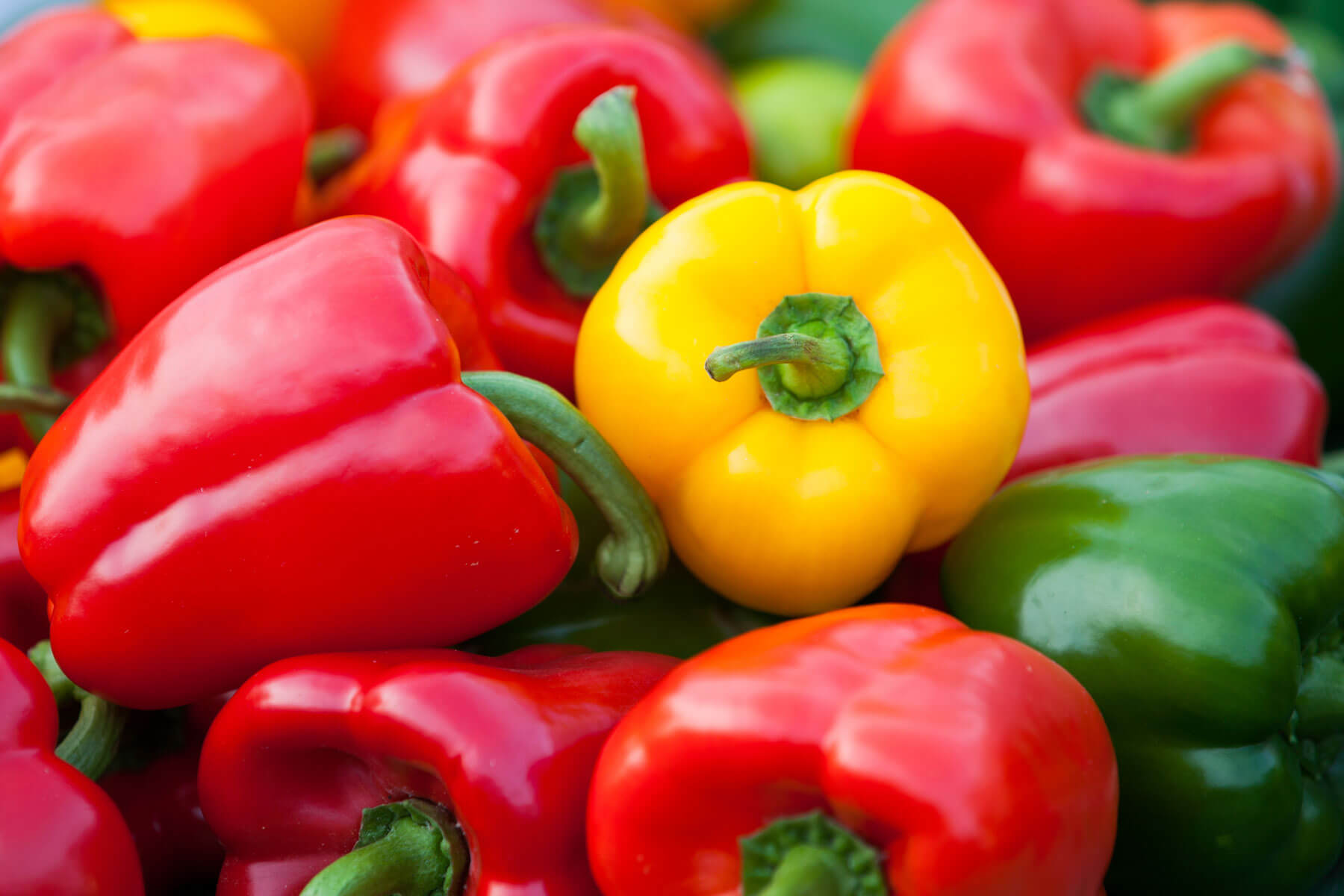Best Fertilizers for Peppers: A Comprehensive Guide to Increase Your Harvest
Best Fertilizers for Peppers: A Comprehensive Guide to Increase Your Harvest
Blog Article
Organic Vs. Synthetic Fertilizers: Which Is Best for Nurturing Healthy And Balanced Pepper Plants?
In the realm of nurturing healthy and balanced pepper plants, the option between natural and synthetic fertilizers stands as a pivotal decision with far-ranging ramifications. While both alternatives goal to provide important nutrients to support plant growth, the subtleties of their influence on the soil, plant health and wellness, and the environment spark an argument that echoes throughout the horticulture community. Recognizing the distinct advantages and prospective pitfalls of each plant food type is crucial for pepper growers seeking to enhance their yields while maintaining an eco-conscious and lasting technique.
Advantages of Organic Fertilizers
Organic plant foods provide a sustainable and environmentally-friendly technique to beneficial pepper plants, supplying vital nutrients without making use of artificial chemicals. These natural plant foods are stemmed from natural resources such as garden compost, manure, bone meal, and algae, promoting soil health and wellness and biodiversity. Unlike synthetic fertilizers, organic choices release nutrients slowly, making sure a balanced and constant supply for pepper plants to grow.
One significant benefit of natural plant foods is their capacity to improve dirt framework and water retention. By enhancing dirt health and wellness, organic plant foods advertise beneficial microbial activity, which helps in nutrient uptake by pepper plants. Furthermore, natural fertilizers lower the risk of chemical run-off, protecting water sources from air pollution and safeguarding the atmosphere.
Moreover, organic plant foods add to long-term dirt fertility by advertising the development of advantageous soil organisms. These microorganisms help break down organic matter, releasing nutrients in a kind that is quickly obtainable to pepper plants. best fertilizers for peppers. By fostering a healthy and balanced soil ecological community, organic plant foods support lasting pepper cultivation techniques that benefit both plants and the setting
Drawbacks of Synthetic Plant Foods
Synthetic plant foods, in comparison to their natural counterparts, present numerous negative aspects when made use of to nurture pepper plants, impacting both plant health and ecological sustainability. One major drawback of artificial fertilizers is their tendency to seep nutrients from the soil quickly.
In addition, the overuse of artificial plant foods can add to water contamination. Excess fertilizers not soaked up by plants can get rid of right into water bodies, causing eutrophication, where algae blossoms deplete oxygen levels in the water, damaging aquatic life. Artificial fertilizers are typically derived from non-renewable resources, such as fossil gas, contributing to carbon exhausts and ecological destruction throughout their production.
Nutrient Absorption Contrast
Efficient nutrient absorption plays an important role in the total wellness and development of pepper plants. When contrasting artificial and organic fertilizers in regards to nutrient absorption, natural fertilizers have the benefit of giving an extra well balanced and slow-release source of nutrients (best fertilizers for peppers). Organic fertilizers include a variety of macro and trace elements that are not only useful for the plants however additionally promote healthy dirt microbial task, which aids in nutrient uptake. On the other hand, artificial fertilizers usually offer a quick launch of nutrients, which can lead to leaching and drainage, causing reduced nutrient absorption prices by the plants.
Moreover, organic fertilizers enhance dirt structure and water retention capacity, enabling pepper plants to access nutrients more efficiently. This better soil high quality assists in origin advancement, enabling far better nutrient absorption. Artificial plant foods, although at first improving plant development because of their high nutrient concentrations, may prevent long-term nutrient absorption by degrading dirt health over time.
Ecological Impact Factors To Consider

On the other hand, synthetic fertilizers, although frequently even more focused and read more immediately readily available to plants, can have damaging impacts on the setting otherwise used properly (best fertilizers for peppers). Their manufacturing needs high energy inputs, leading to greenhouse gas emissions and adding to environment modification. The overflow of excess synthetic fertilizers can infect water sources, leading to eutrophication and hurting water read more ecosystems.
Ideal Fertilizer Practices for Peppers
When feeding pepper plants, maximizing nutrient uptake and minimizing ecological influence are key considerations. To achieve this, it is necessary to comply with best fertilizer practices tailored to the certain requirements of pepper plants. One vital technique is to execute a soil examination prior to applying any type of fertilizers. This examination can identify the pH level of the soil and determine any nutrient deficiencies, assisting you in selecting one of the most ideal plant food solution.
One more crucial technique is to feed pepper plants at the best time. Usually, peppers benefit from obtaining plant food at planting and then again when they start to flower. Over-fertilizing can cause nutrition inequalities and harm the plants, so it is essential to adhere to recommended application prices.
Additionally, selecting a well balanced fertilizer with an NPK proportion that fits pepper plants' needs is fundamental. Organic fertilizers, such as compost or manure, can be superb choices as they launch nutrients gradually and boost soil structure gradually. Synthetic fertilizers can offer a fast nutrient increase when needed. Eventually, integrating synthetic and organic fertilizers deliberately can aid nurture healthy pepper plants while reducing environmental effect.
Conclusion

Organic fertilizers offer an environmentally-friendly and lasting approach to beneficial pepper plants, giving essential nutrients without the usage of synthetic chemicals. Unlike artificial fertilizers, natural choices release nutrients slowly, ensuring a steady and well balanced supply for pepper plants to flourish.
Synthetic fertilizers, in contrast to their organic counterparts, posture various downsides read review when used to nourish pepper plants, affecting both plant wellness and environmental sustainability. When comparing natural and artificial fertilizers in terms of nutrient absorption, natural fertilizers have the advantage of supplying a more balanced and slow-release resource of nutrients.Furthermore, natural fertilizers boost soil framework and water retention capacity, permitting pepper plants to access nutrients more successfully.
Report this page